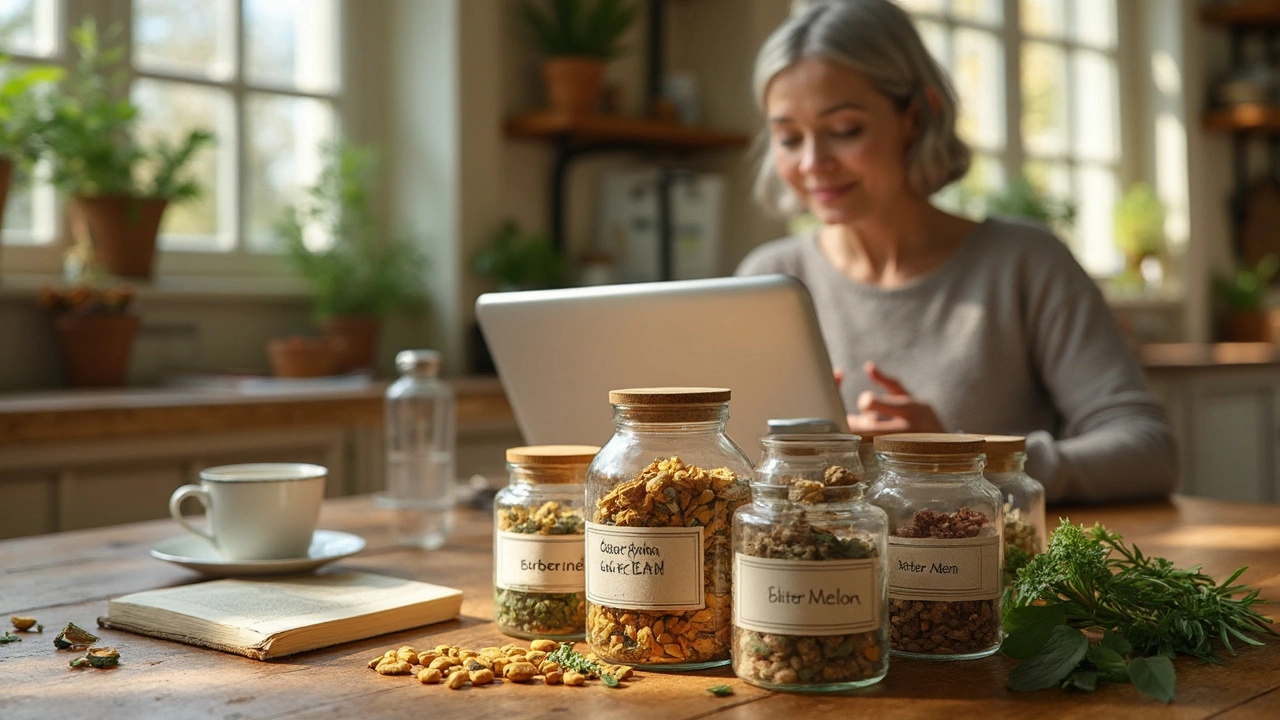Herbal supplements are plant‑based products that you take to boost health, manage symptoms, or support a specific goal. Unlike prescription drugs, they come from herbs, roots, leaves, or berries and are sold as pills, powders, teas, or extracts. People like them because they feel more natural and often have fewer side effects, but that doesn’t mean every product is safe or effective.
American Ginseng – This root is famous for helping the body cope with stress and fatigue. Most studies show a modest boost in energy and better immune response when you take 200‑400 mg a day. If you have high blood pressure, talk to a doctor first.
Wintergreen – The oil contains methyl salicylate, which works like a mild aspirin. It’s great for sore muscles and joint aches. Use a few drops in a carrier oil and massage onto the skin; don’t swallow the oil.
Brickellia – Often called the “Mexican oregano,” Brickellia can soothe coughs and ease digestion. A typical dose is 300‑500 mg of dried herb per day or a tea made from one teaspoon of leaves.
Bromelain – Extracted from pineapple stems, bromelain helps break down protein, reducing inflammation and swelling. A common dose is 500 mg on an empty stomach, three times daily. It can also improve digestion of meat.
These are just a few examples you’ll see on our site. Each article on Pharma‑Doc.net dives deeper into the science, side effects, and best ways to use these supplements.
First, look for a reputable brand that follows Good Manufacturing Practices (GMP). The label should list the exact amount of the active herb and any other ingredients. Third‑party testing seals, like USP or NSF, add extra confidence.
Second, check the source. Wild‑harvested plants can vary in potency, while cultivated herbs usually have more consistent levels of the active compounds. For ginseng, prefer “Panax quinquefolius” labeled as American ginseng, not just “ginseng” which could be a mix.
Third, start low and go slow. Begin with the smallest recommended dose and see how your body reacts before increasing. This helps you spot any mild side effects early, such as stomach upset or an allergic reaction.
Finally, consider interactions. Herbs like ginseng can affect blood sugar or blood pressure, and wintergreen’s salicylates can interfere with blood thinners. If you’re on prescription meds, a quick chat with your pharmacist can save headaches later.
Using herbal supplements wisely means treating them like any other health tool: research, choose quality, start small, and monitor results. Our tag page gathers all articles on herbal supplements, so you can compare benefits, dosages, and safety tips in one place.
Ready to explore? Browse the posts below for detailed guides on American ginseng, wintergreen, bromelain, Brickellia, and many more. Empower your health journey with reliable info and practical advice.

This article explores herbal supplements that can mimic metformin’s actions, focusing on botanicals like berberine and bitter melon. It digs into the science, benefits, side effects, and daily practical tips for using these options to support healthy blood sugar. You’ll find clear, real-world facts and a look at what the latest research actually says. Discover which herbs are trending and how people are including them in routine life. A natural toolkit for people keen on blood sugar support without prescriptions.
Read More